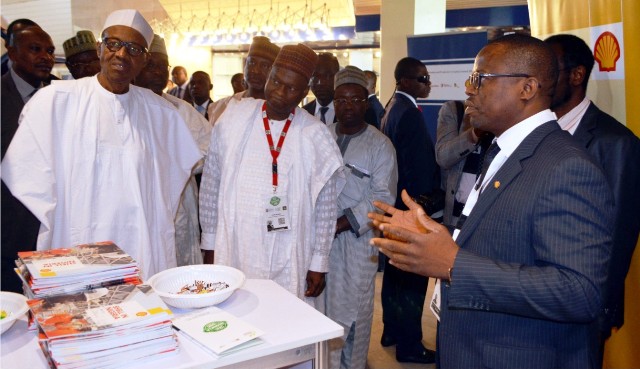Business
2017 Budget: N’Delta Militancy ’ll Spell Doom -Expert

Experts have warned that the renewed threat of hostilities in the Niger Delta could spell doom for the economy as much of the 2017 budget has been predicated on oil revenue from the region.
Lead Director Centre for Social Justice, Eze Onyekpere said that while the disruption of oil production activities in the Niger Delta had a great impact on the 2016 budget, another round of hostilities will only make matters worse for the 2017 budget.
He argued while speaking to newsmen recently in Port Harcourt, that if the Federal Government failed to realize its target of 2.2 million barrels of oil per day, as estimated in the budget, there will be no magic that will make the budget work.
According to him, until the Federal government realizes the need to seek genuine dialogue with the Niger delta people, it will continue building castles in the air.
“The truth is that what is happening is not bound to happen, it can be avoided, if the government does the right thing.
“The problem is the arrogance of power from the President and the people around him”, he said.
He opined that until the government realizes that the oil they continue to beckon does not belong to the Federal government but to the people of the Niger delta, the problem will persist.
Onyekpere insisted that the only constitution which talks about how to distribute revenue in the federation and was agreed to by the representatives of the people was in 1960 and 1963.
“Those were the constitutions negotiated by the likes of Nmamdi Azikiwe, Tafawa Balewa and Obafemi Awolowo amongst others”, he said.
Leader of another Civil Society Group, Vanguard for Transparent Leadership and Democracy (VATLAD), Comrade Odafe Igbini advised President Muhammadu Buhari to swallow his pride and constitute a government of national unity to assist him in salvaging the economy.
Igbini lamented that two years after taking over the reins of power, Buhari has been superintending over an economy that is in recession and almost slipping into depression.
According to him, the standard of living of the people has continued to dwindle following the rising inflation and unemployment in the country.
Buhari and the APC owe it as a duty to Nigerians to resolve these issues instead of lamenting and blaming the previous administration.
Business
Agency Gives Insight Into Its Inspection, Monitoring Operations

Business
BVN Enrolments Rise 6% To 67.8m In 2025 — NIBSS

The Nigeria Inter-Bank Settlement System (NIBSS) has said that Bank Verification Number (BVN) enrolments rose by 6.8 per cent year-on-year to 67.8 million as at December 2025, up from 63.5 million recorded in the corresponding period of 2024.
In a statement published on its website, NIBSS attributed the growth to stronger policy enforcement by the Central Bank of Nigeria (CBN) and the expansion of diaspora enrolment initiatives.
NIBSS noted that the expansion reinforces the BVN system’s central role in Nigeria’s financial inclusion drive and digital identity framework.
Another major driver, the statement said, was the rollout of the Non-Resident Bank Verification Number (NRBVN) initiative, which allows Nigerians in the diaspora to obtain a BVN remotely without physical presence in the country.
A five-year analysis by NIBSS showed consistent growth in BVN enrolments, rising from 51.9 million in 2021 to 56.0 million in 2022, 60.1 million in 2023, 63.5 million in 2024 and 67.8 million by December 2025. The steady increase reflects stronger compliance with biometric identity requirements and improved coverage of the national banking identity system.
However, NIBSS noted that BVN enrolments still lag the total number of active bank accounts, which exceeded 320 million as of March 2025.
The gap, it explained, is largely due to multiple bank accounts linked to single BVNs, as well as customers yet to complete enrolment, despite the progress recorded.
Business
AFAN Unveils Plans To Boost Food Production In 2026
-

 News5 days ago
News5 days ago2026 Budget: FG Allocates N12.78bn For Census, NPC Vehicles
-

 Sports5 days ago
Sports5 days agoAFCON: Osimhen, Lookman Threaten Algeria’s Record
-

 Politics5 days ago
Politics5 days agoWike’s LGAs Tour Violates Electoral Laws — Sara-Igbe
-

 Politics5 days ago
Politics5 days agoRivers Political Crisis: PANDEF Urges Restraint, Mutual Forbearance
-

 Sports5 days ago
Sports5 days agoPalace ready To Sell Guehi For Right Price
-

 Sports5 days ago
Sports5 days agoArsenal must win trophies to leave legacy – Arteta
-

 Sports5 days ago
Sports5 days agoTottenham Captain Criticises Club’s Hierarchy
-

 Sports5 days ago
Sports5 days agoNetball ‘Project 2027’ Sets Higher Target

